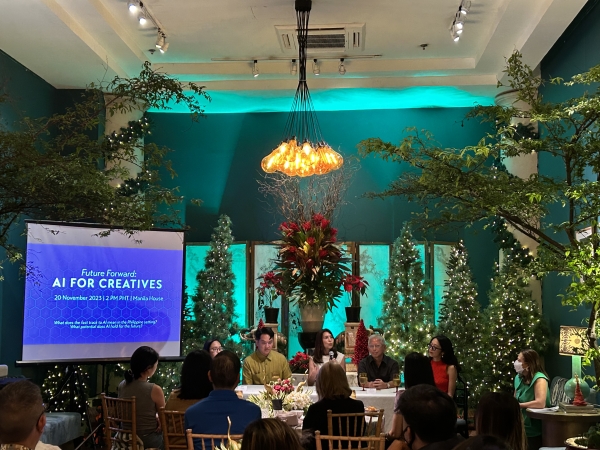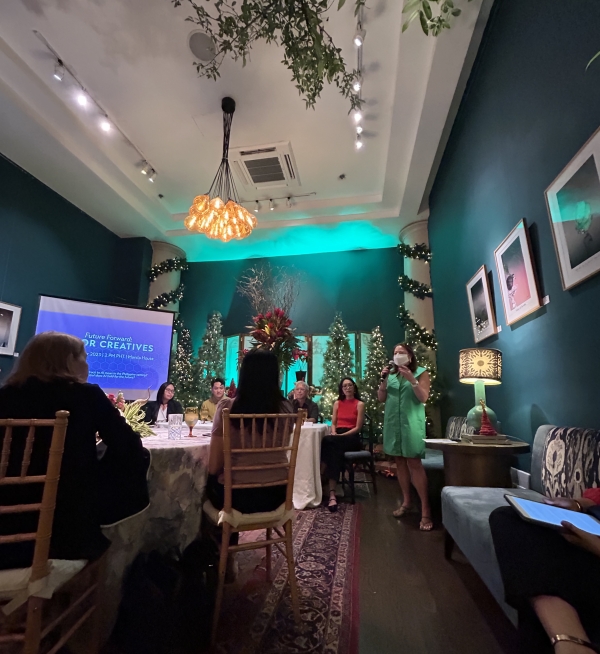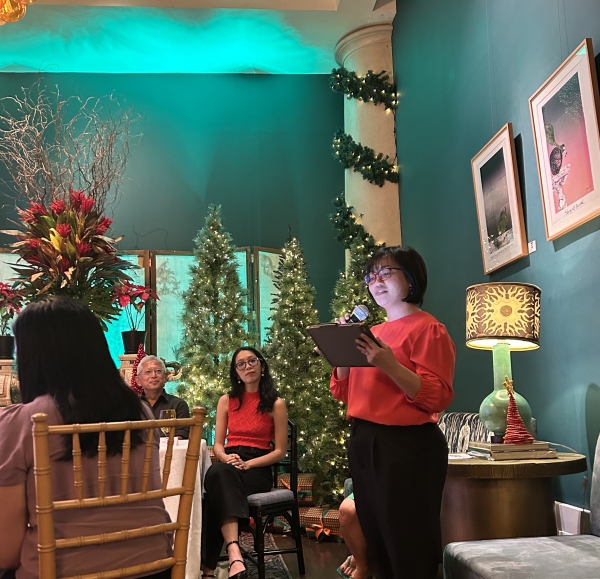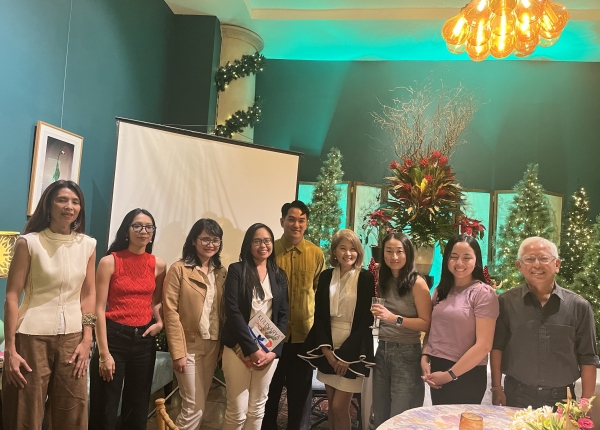Future Forward: AI for Creatives
Last 20 November 2023, Asia Society Philippines and Manila House Private Members’ Club co-presented“Future Forward: AI for Creatives” Joined by renowned experts in the creative field, the panel consists of Ar Gerry Torres from De La Salle-College of Saint Benilde-Center for Campus Arts, Lei Motilla from AI4Gov, Esme Palaganas from PHx Fashion Group, Trickie Lopa from Art Fair Philippines, and Vince Uy from CO Studio. Moderated by Manila House Programme Director Bambina Olivares, experiences, knowledge, and thoughts about AI (Artificial Intelligence) and its future in the Philippine creative industry emerged from their discussion.
Current developments in technology and innovation have brought upon AI in different sectors, even affecting the artistic and cultural sector. Given its versatile and prolific nature, it was met with both hesitancy and favor. The Writers’ Guild of America (WGA) and Screen Actors Guild – American Federation of Television and Radio Artists (SAG-AFTRA) strike against Holywood was partly due to the emergence of AI in the media and entertainment industry. On the other side of the world, a Philippine television network takes a step towards AI direction and decides to debut the ‘country’s first Artificial Intelligence-generated sportscaster[s]’. In this program, our panelists challenge us to delve deeper and ponder into our current perspective about AI usage.
The first point of the discussion focuses on how AI is designed to be a supportive instrument rather than a replacement for humans, amplifying efficiency and aiding innovation. The collaboration between human intellect and AI's capabilities fosters a synergy that enhances problem-solving and creativity. “It just forces any industry that can engage with it [AI] to be better at their practice. Technology challenges people to be better,” Esme Palaganas encapsulates. Trickie Lopa supports by saying “We use it [AI] as a tool to help us conceptualize, but it has not replaced the concepts themselves.”
Ar Gerry Torres then shares that AI transforms arts education by delivering swift analyses of outcomes and the quality of work, which provides humans with valuable outlooks to guide and refine creative processes. He provides an example with his expertise in architecture articulating “In design, you combine two architects and their buildings together. The outcome will be able to analyze the qualities of each architect.”
Moreover, the discussion furthered as it was expressed that humans retain a unique edge over AI due to their rich experiences and cultural understanding, which contribute to nuanced decision-making and creative insights. Additionally, human oversight is crucial as it allows us to control the scale and ethical implications of AI, ensuring that these powerful tools do not replace human activity. Vince Uy follows this insight stating “The human aspect is ingrained to our culture, emotions, experiences, and this is still an edge we have over AI. AI is a tool that will enhance our capabilities, but it us humans who control the scale of its usage.”
Following this, Lei Motilla shares that AI serves as a living voice of humans, leveraging human data to swiftly summarize and connect information. It acts as an accelerated medium, distilling insights and bridging data in a manner that reflects the collective knowledge and patterns inherent in human input. She gives ChatGPT as an example, citing it as “the voices of people into the internet.”
The program concluded with a more balanced understanding of AI, one which diminished fears and piqued fresh curiosity. As AI continues to spread and impact various aspects of our lives, we should prepare for its broader influence. The panelists asserted that we should face it with interest and openness, actively seeking to understand its ramifications and harness its potential for positive advancements of our society.




